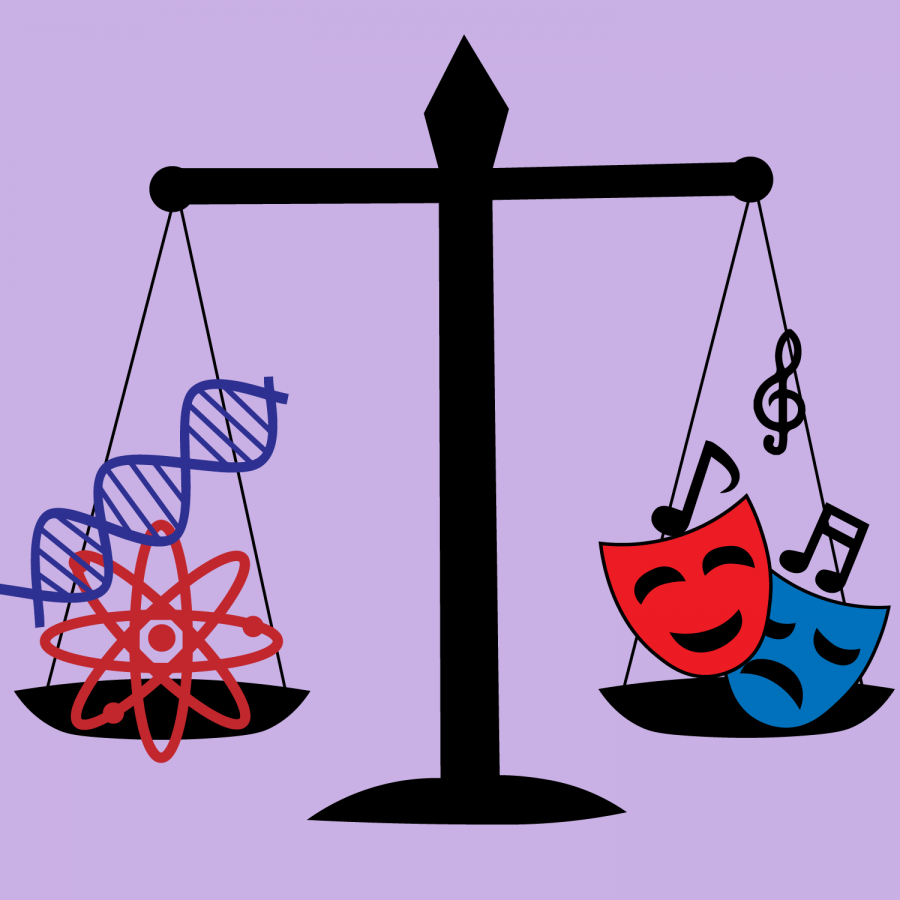Faculty, students value non-STEM majors
Sep 10, 2018
Iain Carpenter found a life without the liberal arts to be empty.
Carpenter is a sophomore double majoring in specialized physics and mathematics within LAS. He is also minoring in art history.
He has always loved art, and after a semester of taking multiple heavy math and physics courses, Carpenter decided to bring some of his love for art into his formal studies.
“I found that it makes me a better student because it just gives my brain some time to think about things subconsciously instead of always being on math,” Carpenter said.
In recent years, higher education has been debating the value of liberal arts and humanities programs. The University of Wisconsin — Stevens Point announced last spring its plan to eliminate 13 liberal arts majors to bring more attention and resources to STEM-focused programs.
Get The Daily Illini in your inbox!
Mark Peecher, Deloitte professor of accountancy and associate dean of faculty of the Gies College of Business, said he sees this as one of two approaches students take when coming to college.
“Some people view coming to college as a chance to primarily learn to think critically … to, therefore, be able to view current social and economic issues through a much broader lens,” he said. “There’s another set of students who come and view this as little more than an on-ramp to get that first job.”
The Gies College of Business has the resources to satisfy both types of students. Peecher said even if students find their passion in a liberal arts major like political science or history, they can get a minor or concentration in business to look more attractive for future employers.
Clare Crowston, chair of the history department, said she does find that some students declare the history major with some uncertainty as to job security. She said a misconception about history degrees is they do not lead to a great career.
Crowston’s history students go on to work in business, government, public service, law, education and more.
Despite this wide variety of career opportunities, Crowston said many remain wary about the practicality of this degree.
“A lot of students really love history, but they’ve been scared by their friends and their parents telling them they need that vocational, practical degree,” Crowston said.
She said she does acknowledge that many of the departments in the humanities do not have the same resources as the Gies College of Business or the College of Engineering. However, Crowston said that is not what she wants to focus on.
While she said it is true the humanities are starved of resources and struggling, she said she prefers the stories of their successes.
“I would like to tell the story of how excellent our humanities are and what great work our students are doing,” Crowston said.
Regardless of what she wants to concentrate on, though, students do have a definite perception of the University’s focus.
“Engineering has all the money, and so does Business, and LAS is just there,” said Spencer Gilbert, sophomore in Engineering.
Gilbert has been studying computer science since he was in seventh grade. When submitting his college applications, he exclusively applied to computer science programs. Nevertheless, he said he finds important benefits from the liberal arts programs.
Gilbert said without teaching the arts, the world would be run by engineers who lack communication skills. He said the balance between technical expertise and understanding of the humanities is important.
“The way that engineers can work most efficiently is if they are social people who can build relationships, who can write well, who can show that they’re not just numbers,” Gilbert said.
Gilbert said computer science, in particular, is an intersection between STEM and the arts. He said that balance is important when students consider their course load.
Jeremy Taylor, junior in FAA, got to explore a wide variety of disciplines before he declared his major as dance.
Taylor said he started college in DGS but with a love for business. His first year, he took several classes that fulfilled general education requirements including prerequisites for the Gies College of Business. He also had an attraction to dance that he had never had the chance to explore fully. He took a contact improv class, which made him wish to explore his love for dance formally.
Taylor said he has incredible passion for his studies now. However, there are people who have given him critical responses to his choice of major.
“Whenever I say, ‘Oh, I’m a dance major,’ people go, ‘Oh, that’s fun!’ But that’s all they see it as,” said Taylor.
This has not discouraged him. He confidently studies dance with the belief that passion is the most important thing to consider when pursuing a career.
He also wants more people to be aware of the community of FAA. He said it is important to raise awareness of the fact that dance is still a necessary discipline.
Carpenter tries to raise this awareness among his physics peers. He said he recognizes that the arts, as a whole, still provide incredible value to the students’ experiences on campus. He said balance in studies is often neglected by students.
Carpenter also said some fellow physics students believe that physics is the end-all-be-all. He said they want to devote all of their time and energy into physics.
“That’s not the way I want to live life,” Carpenter said.






